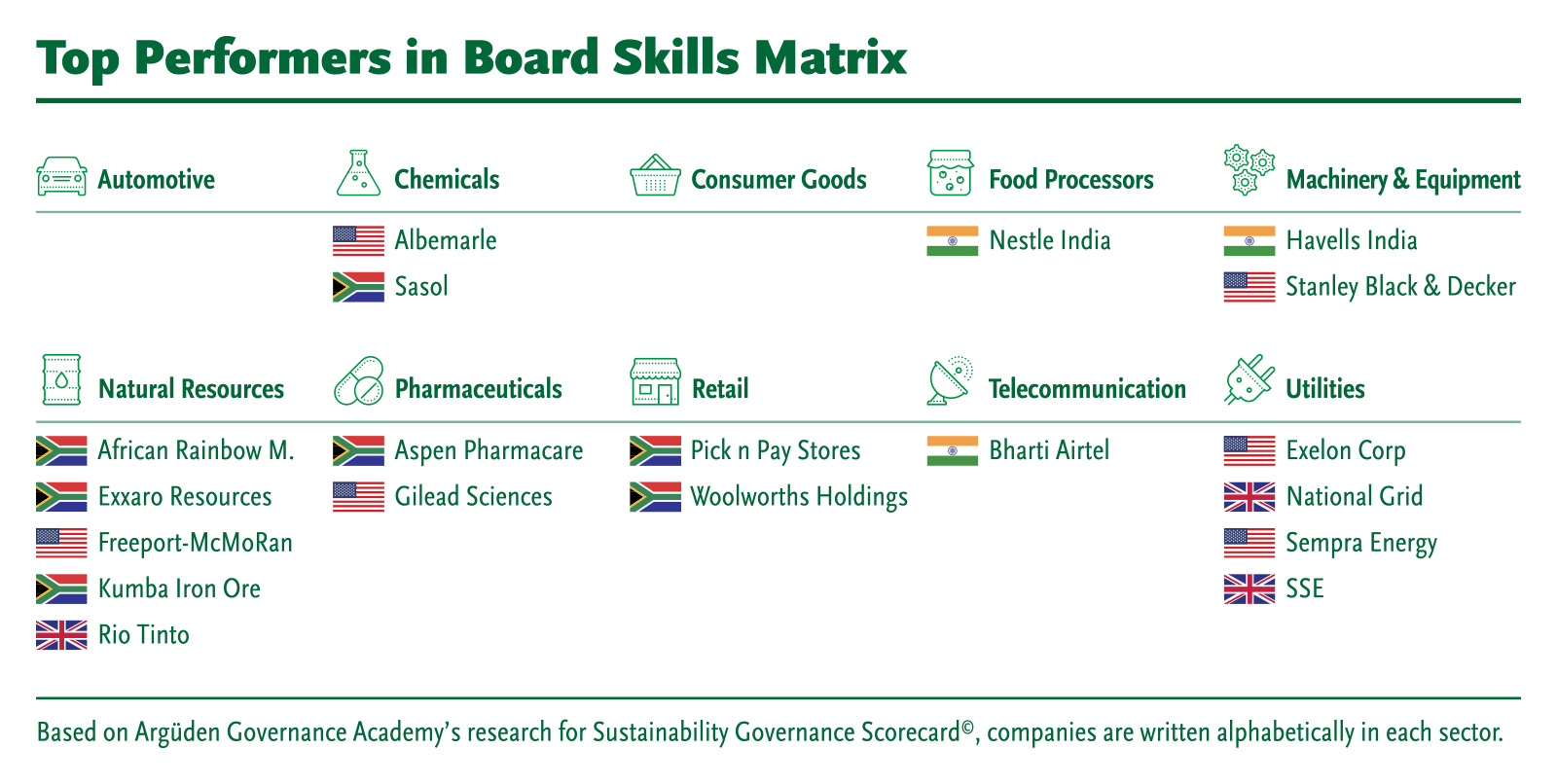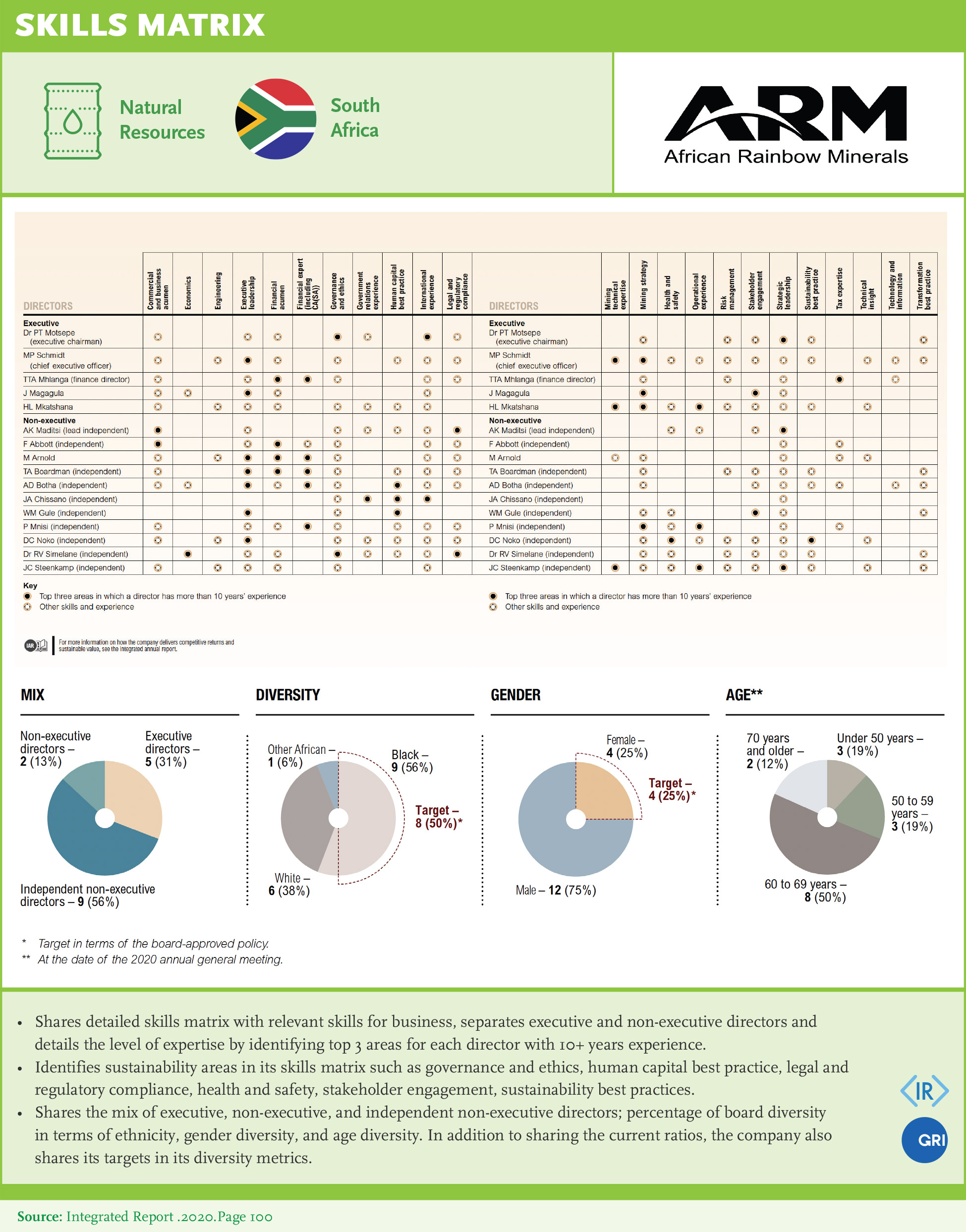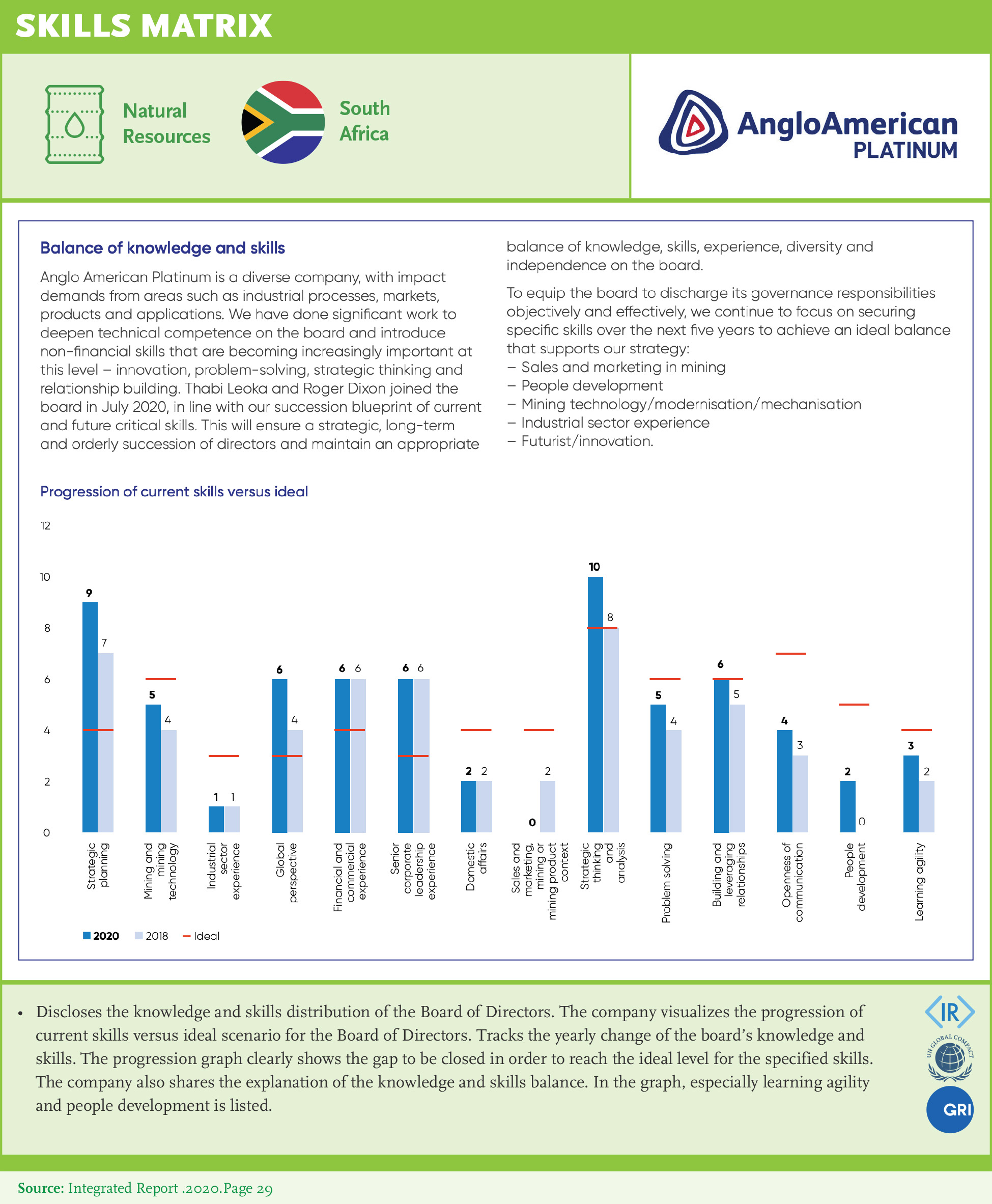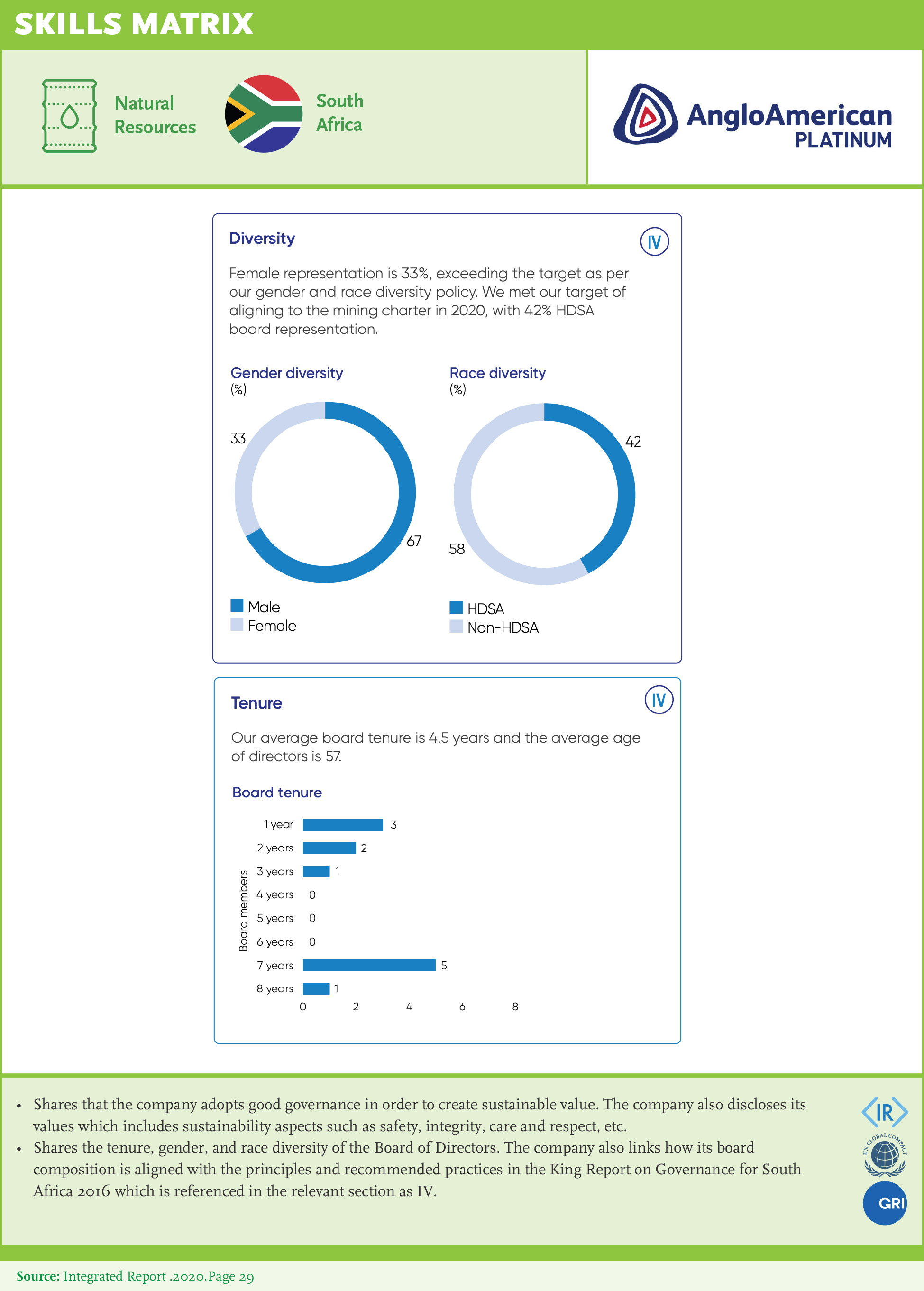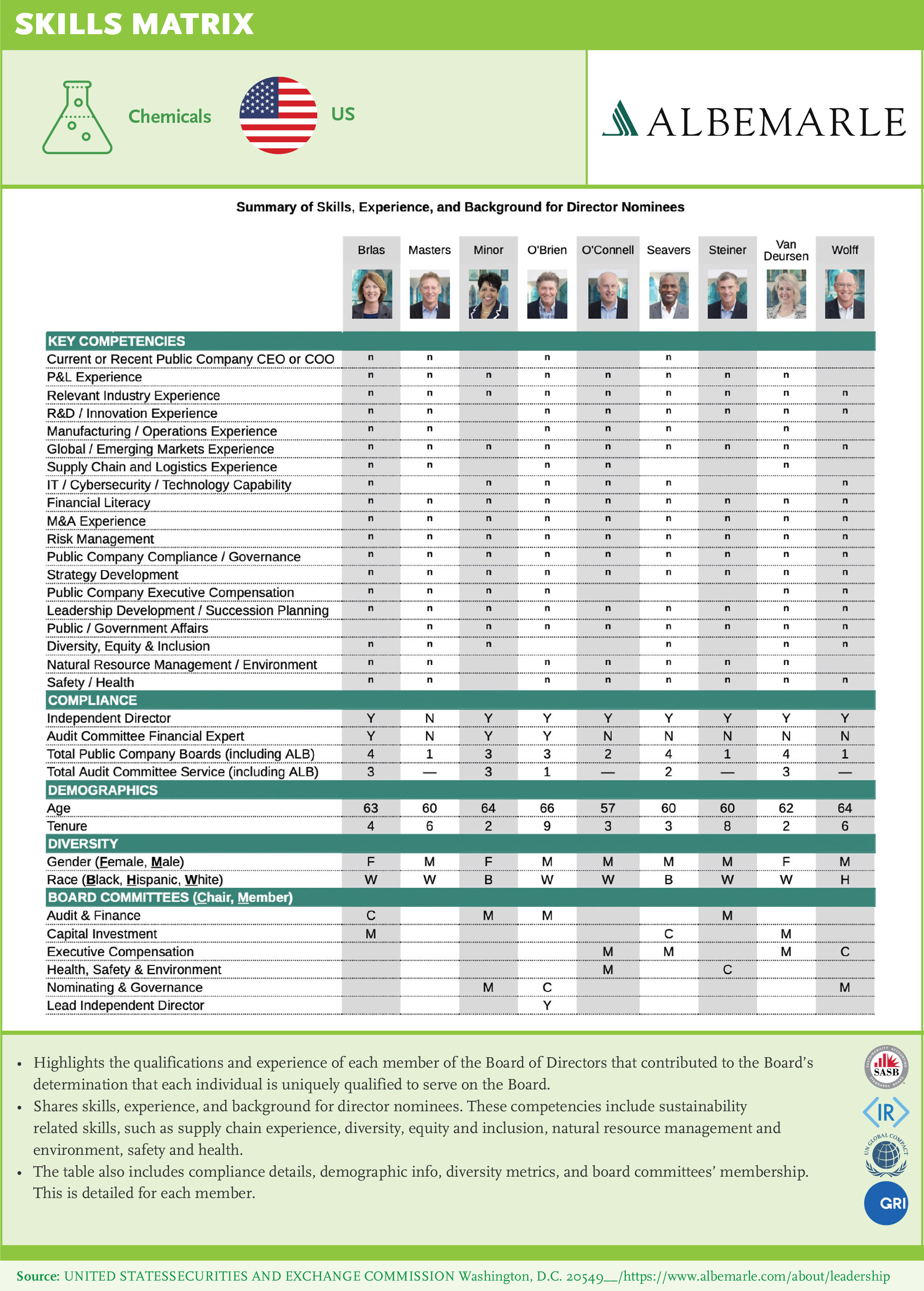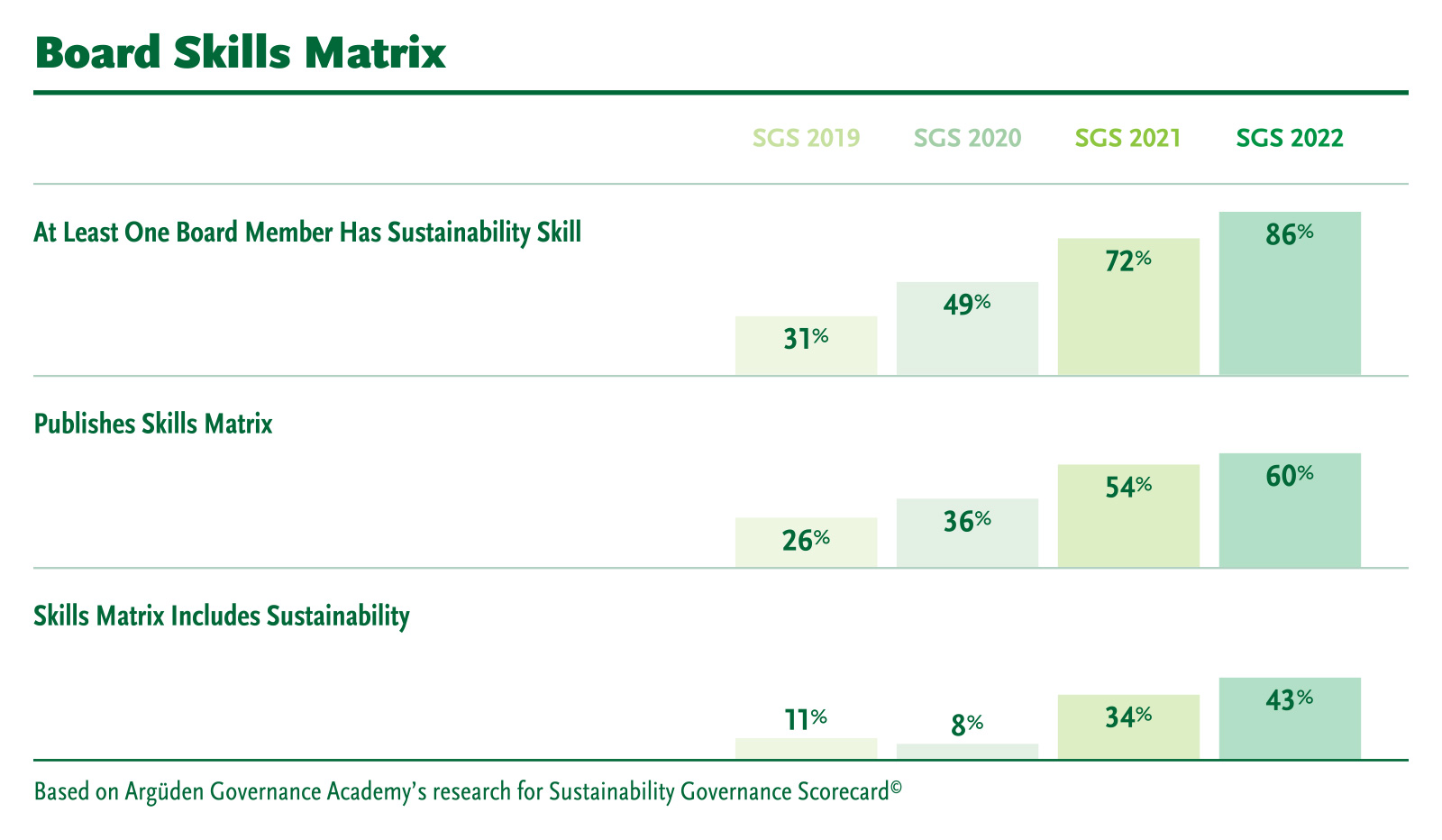
Good Practice Examples
Recommendations
Link business requirements to board qualifications and make sustainability a board priority. Responsible boards make sustainability a leadership priority and ensure they have the right people (skills and diversity) to provide leadership and direction on sustainability.
Publish a skills matrix: A skills matrix identifies the skills, knowledge, experience, and capabilities desired of a board to enable it to meet both its current and future challenges and realize its opportunities. A comprehensive skills matrix should include business priorities, skills and experience of board members in a table format, including information to assess diversity, management experience, relevant industry and geographical experience as well as sustainability skills relevant for the companies’ priorities.
Focus on sustainability as a board member skill: Sustainability-related skills requirements can cover a wide range of ESG issues, which are necessary for board members to understand the sustainability risks and impacts across the corporation’s value chain and how this might impact the business model and competitive positioning of the corporation. Boards also need to have the skills and experience to provide guidance on sustainability driven innovation and value creation opportunities.
Increase diversity to manage sustainability: Managing sustainability is complex and requires multiple perspectives to be represented for the board to effectively engage in strategic discussions and make long-term business decisions. We find that best-in-class companies ensure that their boards are fit to drive change towards a sustainable business by having diverse boards and assess diversity across multiple dimensions including age, tenure, gender, ethnicity, cultural background; geographic, functional and industry experience.
Foster productive dialogue: Having the right skills, experience and diversity is the first step – but there must be productive dialogue within members of the board to reap the benefits of diversity. This requires experienced, collaborative, and responsible board members, and a strong board culture based on trust. Proper examination of diversity of mind would need a review of board proceedings to see if different alternatives and their potential impacts are evaluated and challenged with respect to risk and reward, short term and long-term effects, and effects on different stakeholders.
